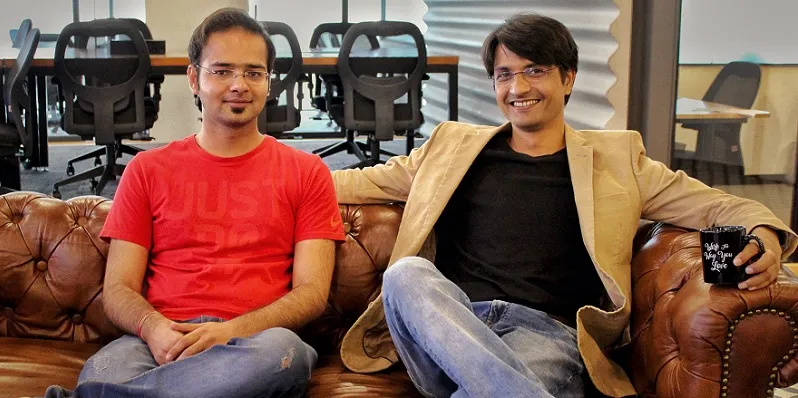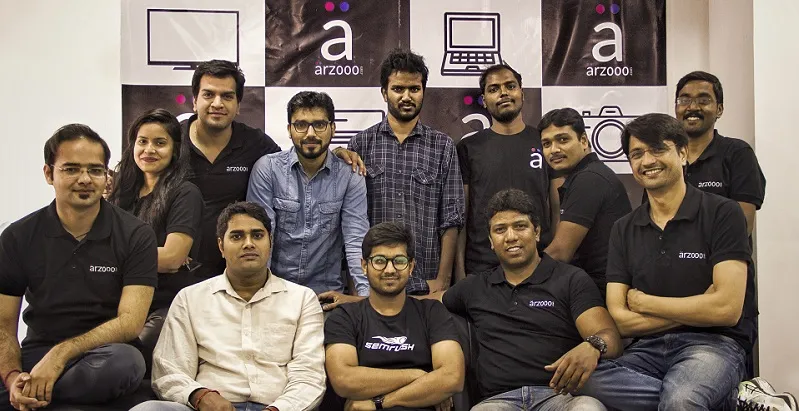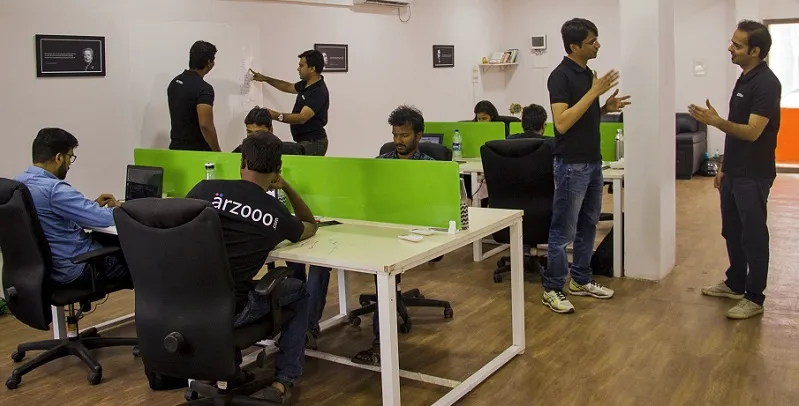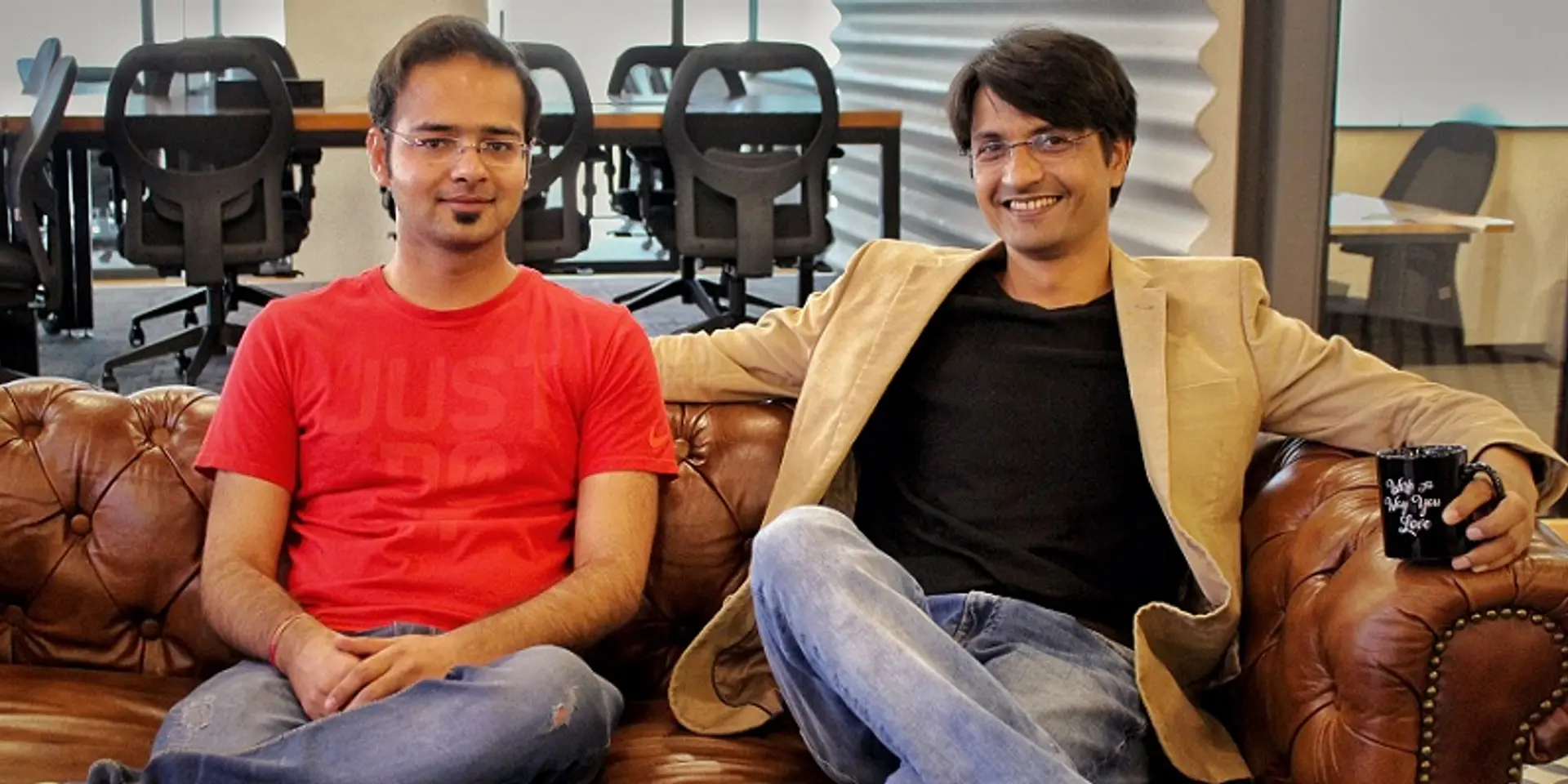After building Flipkart’s grocery delivery, they are now building a new ecommerce model with Arzooo
Arzooo is a reverse-auction, demand-driven platform that sends demand from customers, who see online prices, to select top retailers. Retailers bid for this customer with their prices and beat prices on other online platforms.

At a glance:
Startup: Arzooo
Founders: Khushnud Khan, Rishi Raj
Year founded: 2016
Location: Bengaluru
Sector: E-commerce
Problem it solves: Finding best prices between online and offline retailers
Funding: Seed funded, undisclosed
Kolkata-based Khushnud Khan, 34, and Jaipur-based Rishi Raj, 25, met while working at India’s ecommerce big daddy Flipkart. An MBA graduate with over 10 years’ experience in consumer electronics and e-commerce space, Khushnud was an Associate Director at Flipkart, where he set up large appliances category and scaled that to Rs 1,500-crore business. He also started Flipkart’s hyperlocal delivery segment for food and grocery deliveries. Rishi, an IIT Kharagpur alumni, has worked with Flipkart as a product manager, leading hyperlocal grocery and logistics platforms on the product front. He built FQuick - a hyperlocal logistics platform grounds up, and scaled that to 50,000+ order in just five months.
While working at Flipkart, being a part of India’s e-commerce revolution, both of them felt concerned about the sustainability of the traditional e-commerce model in India and value-creation for consumers in high-value purchases. “We knew something groundbreaking needs to be done to solve these, and once you do there is a massive opportunity,” Rishi recollects.
They started with building a vertical e-commerce platform for large appliances - solving major pain points in product discovery, selection and after-sale services. With good response in the initial two months, they noticed that working with top retailers and negotiating prices in real time with them enabled them to give consumers the best price in market, beating Flipkart and Amazon.
Rishi recounts, “We decided to give the power back to shoppers where they can demand a better offer while shopping online. We knew this is the next wave of e-commerce that will disrupt the Indian price-sensitive consumer market. This is E-COMMERCE 3.0.”
There started their journey of testing and product-market fit efforts to make this model robust and scalable across India. Arzooo was launched in October 2016. Over the next four months, Arzooo made over 1000 transactions, building a loyal and happy customer base in Bengaluru, where its team of 15 is based.
What makes Arzooo unique?
Arzooo is India’s first reverse auction-based ecommerce platform. Once the consumer chooses what product he wants to buy, he puts the URL or model ID of the product on Arzooo website to create a demand for the best price. Alternatively, he can also choose the product from the Arzooo catalogue and create a demand.
Arzooo follows a unique real-time reverse auction mechanism and sends this demand with current online prices (from Flipkart and Amazon) to select top retailers. Retailers bid for this customer with their prices and beat online prices. The lowest price from bid goes to the consumer, within an hour.
Arzooo hosts the transaction on its platform and does one-day delivery. It is an asset light, demand-driven commerce platform, with a sustainable and scalable business proposition.
Rishi claims that they are unit economics-positive on each order. He elaborates, “We take commission from sellers. And we work with select top retailers/chains in market, who have good margins and presence across geographies. We empower them to compete with online players and increase their sales exponentially without any additional marketing cost.”

Arzooo has a team of experienced product and design professionals working on simplifying the user experience. “We have been doing deep consumer research and implementing the learning on Arzooo through a great UX and interaction design mix. We are also using machine learning, building pricing engines to make reverse auction mechanism work at huge scale,” Rishi explains.
Building interest among customers
As Arzooo was a fairly new concept for Indian consumers, it was a challenge to make consumers generally aware about it. “We built concept-related video advertisements that run on all social platforms. We went on air through FM channels and also run ads on Facebook and other social platforms to let consumers know about Arzooo. This worked out well for us and we got a huge interest from consumers,” Rishi says.
Arzooo targets the 25-45 age group, with household income above Rs 6 lakh. Currently, laptops, TVs and ACs are the most popular categories. A major chunk of their customer base is made up of high intent users, targeted through focused offline-centric activities in top retail clusters in each city. Yet, making reverse auction model work at scale and reaching out to the next million users is a tough task.
“We plan to leverage deep tech and build algorithms that help us predict discounts in real time and reduce retailers’ manual efforts to put in best prices through current systems,” Rishi says.
He adds that there is no direct competition for Arzooo. Although there are a few categories where Flipkart and Amazon will be potential competition, Arzooo is an asset-light platform with a demand-driven model rather than a traditional supply driven ecommerce model.
“Flipkart, Amazon sell products on listed prices, and people can only choose products what is listed on those sites. In Arzooo, we empower consumers to get the best price from market, which beats online prices elsewhere; and shopping is not restricted by catalogue,” adds Rishi. Consumers can demand the price for whatever product they wish for. Presently, Arzooo’s average ticket size is Rs 24,500. They have seen 30-percent conversion rate and a repeat rate of 20 percent.

Talking big numbers
Combining all electronics categories like home appliances, mobiles, laptops etc, India offers a $35-billion market, according to IBEF. Arzooo, being an asset-light platform with zero operational cost, is operationally unit economics positive. It plans to be EBITDA-positive in the next three years, doing a $500 million GMV.
Rishi says Arzooo has been growing monthly 40 percent for the last six months. “Our current yearly run rate is Rs 6 crore. Our target for FY19 is Rs 50 Crore; based on our current trajectory we should be reaching this before time,” he adds.
Currently serving only in Bengaluru, Arzooo plans to expand across Tier I and II cities in Q1 and Q2 of FY19, based on overall market potential and current adoption to e-commerce in those markets. Arzooo has already raised seed funding, and is about to raise a pre-Series A round.



